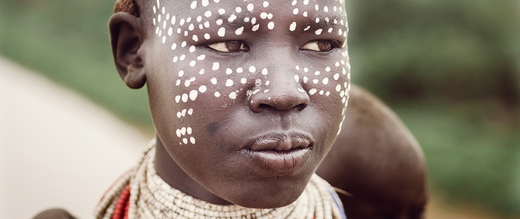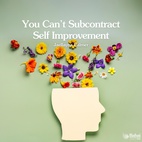The views expressed in our content reflect individual perspectives and do not represent the official views of the Baha'i Faith.
…among the teachings of His Holiness Baha’u’llah is the equality of women and men. The world of humanity has two wings — one is women and the other men. Not until both wings are equally developed can the bird fly. Should one wing remain weak, flight is impossible. Not until the world of women becomes equal to the world of men in the acquisition of virtues and perfections, can success and prosperity be attained as they ought to be. – Abdu’l-Baha, Selections from the Writings of Abdu’l-Baha, p. 302.
For six thousand years, since the dawn of recorded human history, men have dominated women. But finally equality between the sexes, which the Baha’i teachings strongly emphasize, has now started to gain momentum in some places in the world. In the year 2000, the United Nations’ Millennium Development Goals adopted the global aim of promoting gender equality and empowering women, with the firm belief that doing so would help the entire world attain the success and prosperity Abdu’l-Baha spoke of a century ago.
In the decade and a half between 2000 and 2015, with global action for the equality of women and men taking place on a number of fronts, what did we accomplish in this critical human sector? The UN’s Report on the MDGs shows some significant progress, but reveals that many gross inequities still prevail. On the positive side of the ledger:
Women now make up 41 per cent of paid workers outside the agricultural sector, an increase from 35 per cent in 1990.
Between 1991 and 2015, the proportion of women in vulnerable employment as a share of total female employment has declined 13 percentage points. In contrast, vulnerable employment among men fell by 9 percentage points.
Women have gained ground in parliamentary representation in nearly 90 per cent of the 174 countries with data over the past 20 years. The average proportion of women in parliament has nearly doubled during the same period. Yet still only one in five members are women. – from the UN MDG 2015 Report
But on the negative side:
Women continue to face discrimination in access to work, economic assets and participation in private and public decision-making. Women are also more likely to live in poverty than men. In Latin America and the Caribbean, the ratio of women to men in poor households increased from 108 women for every 100 men in 1997 to 117 women for every 100 men in 2012, despite declining poverty rates for the whole region.
Women remain at a disadvantage in the labour market. Globally, about three quarters of working-age men participate in the labour force, compared to only half of working-age women. Women earn 24 per cent less than men globally. In 85 per cent of the 92 countries with data on unemployment rates by level of education for the years 2012–2013, women with advanced education have higher rates of unemployment than men with similar levels of education. Despite continuous progress, today the world still has far to go towards equal gender representation in private and public decision-making. – Ibid.
The female-to-male wage gap, in fairness, has slowly narrowed, little by little, for the last several decades. Women now earn, on average in the world, seventy-six cents for every dollar a man earns. In the United States, just as one example, women earned 59% of the wages men earned in 1963; in 2012 they earned 80.9% of men’s wages—an improvement of about half a cent per dollar earned every year. With that trend continuing or accelerating in many of the world’s regions, we could close the gender gap and actually achieve equal pay for equal work in the next few decades.
The goal of elevating the status of women, however, has a much larger focus than mere wages—it reflects a wide range of issues like child marriage, marital violence, access to education and resources, and most importantly, securing the right of every girl and woman to determine her own future.
Baha’is believe that the world will inevitably see the complete equality of the sexes; that this ineluctable movement toward equality cannot be stopped:
In this Revelation of Baha’u’llah, the women go neck and neck with the men. In no movement will they be left behind. Their rights with men are equal in degree. They will enter all the administrative branches of politics. They will attain in all such a degree as will be considered the very highest station of the world of humanity and will take part in all affairs. Rest ye assured. Do ye not look upon the present conditions; in the not far distant future the world of women will become all-refulgent and all-glorious, For His Holiness Baha’u’llah Hath Willed It so! At the time of elections the right to vote is the inalienable right of women, and the entrance of women into all human departments is an irrefutable and incontrovertible question. No soul can retard or prevent it. – Abdu’l-Baha, Paris Talks, pp. 182-183.
Next: Save the Children: Reducing Child Mortality
You May Also Like
Comments

















I recently heard an interview with Claudia Goldin, a professor of economics at Harvard University. She studies gender pay gap issues. While it is a common refrain that pay gap is caused by discrimination, Professor Goldin disagrees. She confirms the differences in pay but says: "Does that mean that women are receiving lower pay for equal work? That is possibly the case in certain places, but by and large it’s not that, it’s something else."